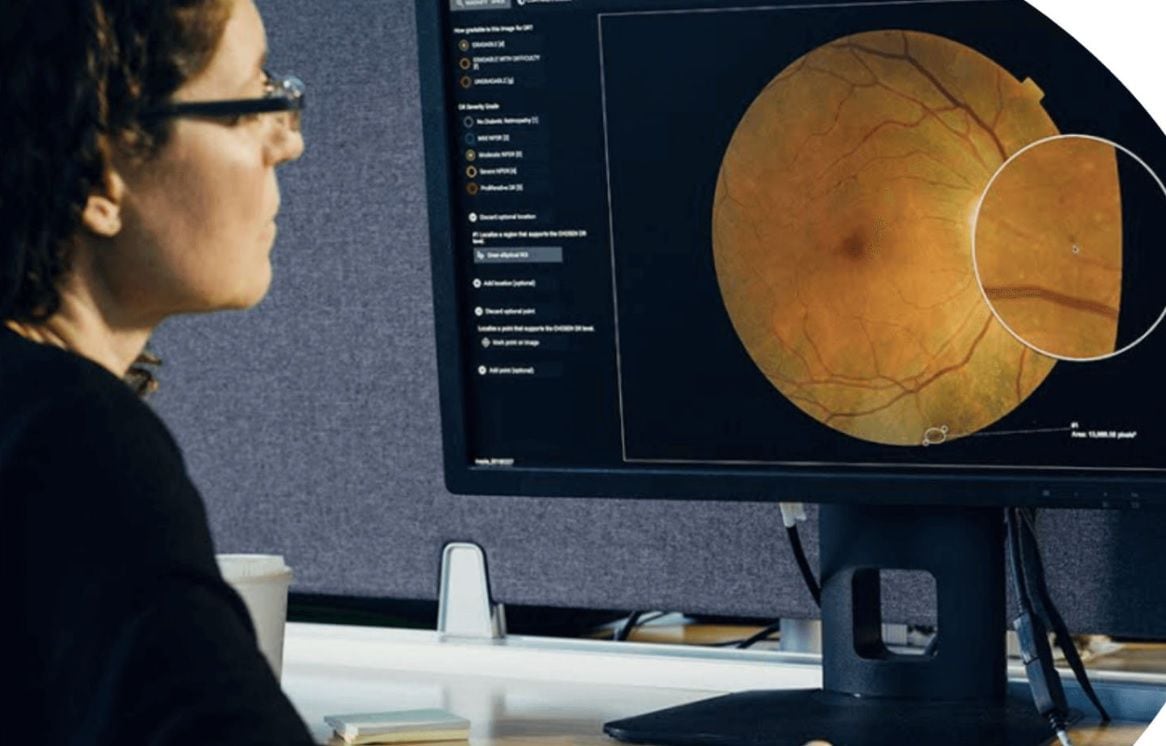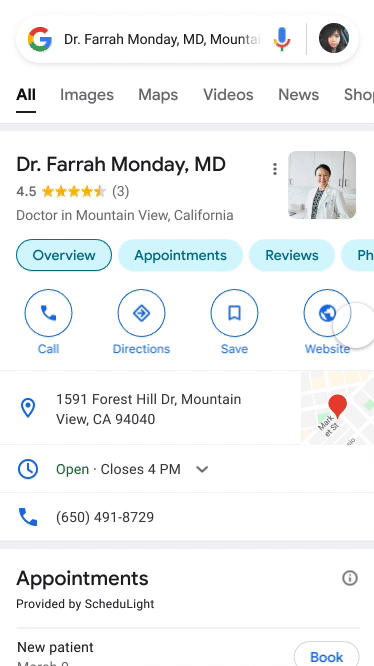
Cell phone microphones could help monitor the heart and thus prevent heart problems. This was one of the novelties announced by the Mountain View giant at its Google Health event The Check Up, where new areas of research related to artificial intelligence (AI), and in which Infobae was present.
They are tools that aim to help doctors better perform their care tasks.
The built-in microphones of a smartphone could record the sounds of a user's heart when placed on the chest. The company is investigating the scope of this technology. This is an initiative that is in the testing stage but could soon be extended.
“We hope that our work will enable people to use the smartphone as an additional tool in health assessment,” they highlighted from Google, at a media event in which Infobae participated.
Auscultation, a medical practice that involves listening to a person's heart and lungs with a stethoscope, is a key part of any routine physical examination. This can help doctors identify heart valve disorders, such as aortic stenosis, when the aortic valve does not open completely, which decreases blood flow from the heart. Early diagnosis of this condition is essential for the patient's health.
Of course, to perform this type of practice you need a stethoscope. With this new development designed for mobile phones, the aim is to create a tool for monitoring and diagnostics that are easy to use and more inclusive. The smartphone has a high penetration in the population, so using it as an additional diagnostic tool could facilitate and optimize the task of doctors who will be able to reach a larger population in a short time.
Another novelty presented by the computer giant is linked to vision care. “One of our first health AI projects, ARDA, aims to help address screening for diabetic retinopathy,” they announced.

Automated retinal disease assessment, or ARDA, uses artificial intelligence to help doctors detect diabetic retinopathy that can lead to blindness if not treated early. The idea is that in the future this technology will also be used to diagnose other diseases.
The company reported that they recently conducted a study with the national screening program for this pathology in Thailand and concluded that the ARDA system is accurate and can be safely implemented in multiple regions. It is a reliable and accessible solution for users.
Previously, Google showed how photos of the inside of the eyes can reveal cardiovascular risk factors, such as high blood sugar and cholesterol levels. All this information could be processed thanks to deep learning or deep learning systems.
In this last study, the detection of diabetes-related diseases was analyzed from photographs of the outside of the eye, using cameras used in clinics.
“Since early results are promising, we are waiting for clinical research with partners including EyePACS and Chang Gung Memorial Hospital (CGMH) to investigate whether smartphone camera photos can help detect diabetes-related diseases from external photos of the eye as well ”, they emphasize from the company.
This project is also in the early stages of research and development, but all indications are that progress will continue along this line and promising results could soon be achieved.
The search engine and news to improve health-related searches
Google also announced that the search engine has been optimized for users in the US to find more relevant information about their healthcare providers.
“The search team recently launched features to help people navigate the complex healthcare system and make more informed decisions, such as finding health care providers who accept their insurance,” the meeting mentioned.
Among the new features is a feature that shows the availability of healthcare providers so that the user can easily book an appointment.

It should be noted that it is a tool that is currently available on a limited basis, in the United States. In the future, the idea is to expand the functions so that this service has a greater reach.
Fitbit and a tool for heart monitoring
Another announcement was related to Fitbit, which received authorization from regulatory entities in both the United States (FDA) and Europe (EC) for the application of an electrocardiogram (ECG), which serves to identify atrial fibrillation, a condition that affects more than 33.5 million people worldwide.
Fitbit conducted a major clinical trial in the U.S. Department of Education, which evaluated the algorithm's ability to accurately detect atrial fibrillation of normal heart rhythm and generate an ECG trace, that is, the recording of the electrical energy of a heart. The report showed that the algorithm had the ability to detect 98.7% of cases of atrial fibrillation and was 100% accurate in identifying study participants with normal sinus rhythm.
The new ECG app on the Fitbit device helps analyze the heart rate for signs of atrial fibrillation. In this way, the platform offers a tool for users to take an on-the-spot reading of their heart rate at any time.

Heart disease continues to be the leading cause of death worldwide, despite being one of the most preventable conditions. T he atrial fibrillation, an irregular heartbeat that increases the risk of serious complications such as stroke, can be particularly difficult to detect, as episodes may sometimes show no symptoms.
Some studies suggest that up to 25 percent of people who have a stroke related to atrial fibrillation find that they have this pathology only after a stroke has occurred, they note in the released statement.
KEEP READING:
Últimas Noticias
Debanhi Escobar: they secured the motel where she was found lifeless in a cistern
Members of the Specialized Prosecutor's Office in Nuevo León secured the Nueva Castilla Motel as part of the investigations into the case

The oldest person in the world died at the age of 119
Kane Tanaka lived in Japan. She was born six months earlier than George Orwell, the same year that the Wright brothers first flew, and Marie Curie became the first woman to win a Nobel Prize

Macabre find in CDMX: they left a body bagged and tied in a taxi
The body was left in the back seats of the car. It was covered with black bags and tied with industrial tape
The eagles of America will face Manchester City in a duel of legends. Here are the details
The top Mexican football champion will play a match with Pep Guardiola's squad in the Lone Star Cup

Why is it good to bring dogs out to know the world when they are puppies
A so-called protection against the spread of diseases threatens the integral development of dogs




